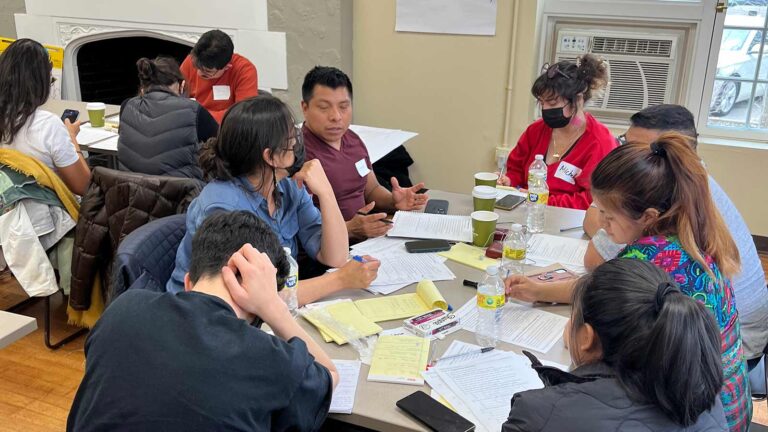CHAMPAIGN — Champaign-Urbana nonprofits are using COVID-19 relief to help victims of labor and sex trafficking free themselves.
To become free and independent, victims need a legal status via a trafficking – or “T” — visa.
Lisa Wilson is the executive director of The Refugee Center in Champaign. She says T visa applicants need a mental health professional to confirm the trauma they’ve been through.
“In fact, for T visas, I’ve been told by immigration attorneys to not even apply, if you don’t apply with a mental health evaluation. It has to be part of the evidence,” Wilson says.
In January, Champaign County set aside $250,000 in COVID-19 relief for a coalition of immigrant advocacy groups, including The Refugee Center. The New American Welcome Center at the University YMCA is administering the money and finalized the contract with the county on March 30.
Other organizations in the cooperative include Immigrant Services of Champaign-Urbana, Pixan Konob’, and The Immigration Project.
The money comes from third and largest coronavirus stimulus package, the American Rescue Plan Act of 2021.
Wilson hopes to hire an in-house, licensed social worker with some of the COVID-19 relief funds. Wilson says this counselor will both provide that evaluation for victims of trafficking and increase access to mental health care for Champaign County’s broader immigrant community.
Training Q’anjob’al interpreters
The coalition is also using COVID-19 dollars to develop interpretation services for immigrants who speak indigenous languages.
Champaign County is home to one of the largest communities of Q’anjob’al speakers in the United States, according to University of Illinois clinical professor Korinta Maldonado.
While many among the indigenous Guatemalan immigrants also speak Spanish, they may not understand important nuances in that second language, Maldonado says.
“It’s a matter of life and death. And I think COVID really pointed to that. It allowed us to see that if you don’t understand the safety protocols, it really can mean life or death,” Maldonado says.
Maldonado is leading the charge to train multilingual Q’anjob’al speakers to become professional interpreters for others, using the COVID-19 relief.
“I think all of us have been inundated with calls from various providers — from school districts to the county courthouse — asking for translation because they need assistance with this, especially with the indigenous population,” Wilson says.
The group also hopes to use the Q’anjob’al project as a model for other indigenous and non-dominant languages.
New American Welcome Center director Gloria Yen says the money from Champaign County will help to hire a language access coordinator to create a formal plan for language access across the county.
Emily Hays is a reporter for Illinois Public Media. Follow her on Twitter @amihatt.

